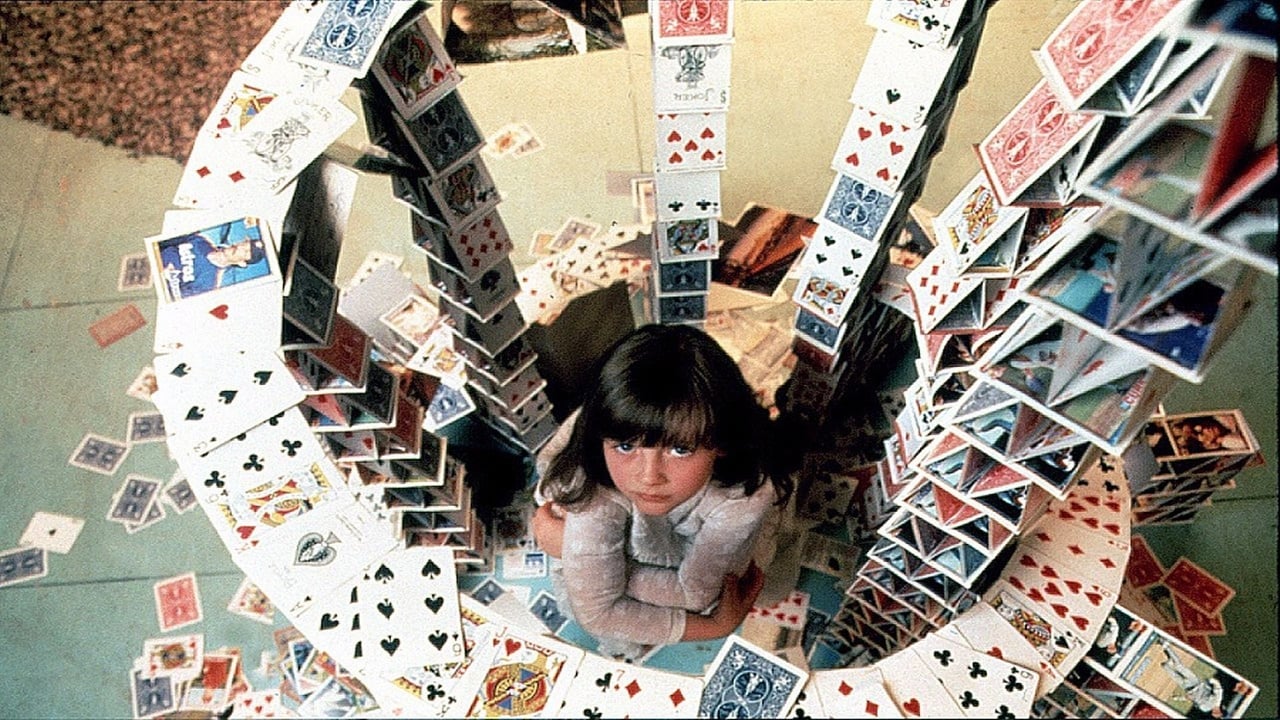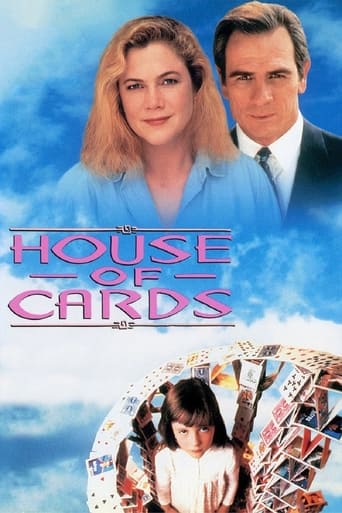

SPOILER ALERT****************************************** I actually don't know if I give away too much but I am putting the alert here just to be safe.As a mom of a little boy with autism, I was drawn to this movie and come back again from time to time. I always cry at the end knowing that is not a reality for families with autism but wishing it could be. The school where the doctor teaches other kids is the reality I know. And the line (forgive me if it is not exact), "Here, ordinary is extraordinary" is something I think only families dealing with autism truly understand. My son and I have been working with specialists since he was just over a year old. And at 3 years and 9 months, I got my first, self-initiated "Mommy, I need a kiss." I cried with joy for days. He expressed an emotional need, self-initiated it, and said it in a sentence! You can tell when you meet people new to my son and they get so excited about the extraordinary things he can do. But like in this movie when you look at the parents and teachers working so hard, it is on the little things you take for granted. Don't get me wrong. We love the extraordinary things that make our children so special and fascinating. But when the ordinary things happen like the boy at the school hugging his mom for the first time, that is when we parents shout for joy and hoot and holler in celebration.Dealing with a child with autism is like putting together a giant puzzle with infinite pieces. If you like the thrill of figuring things out, then it is great because the puzzle never ends...it just develops into a clearer picture the more you can fit things together. And since the number of pieces are infinite, you don't get a neat little picture on the box that lets you know exactly how things should look and you work towards that. Nope, that kind of puzzle is for amateurs. With autism, you study the pieces as they fit together and learn how they relate to one another and get glimpses of what a bigger picture may look like. But you know at any time one section of the puzzle may elude you completely while another section starts coming together quickly, making sense out of the patterns. And what you get is an ever-growing and changing picture of who that child is.
... View MoreHaving seen 'House of Cards' a number of times now, I never fail to find this film a involving and intriguing on every viewing. The film revolves around the Ruth Matthews, whose husband dies in a fall and who risks also losing her six-year-old daughter Sally when she retreats into her own world falling the death of her father. As child psychologist Jake determines that the best way to treat Sally is to use therapies similar to how he counsels his autistic patients, Ruth resorts to more eccentric methods of reaching out to her daughter.A number of people seem to dislike 'House of Cards' because they feel it portrays easy cures to autism. However, like other fans of the film, I never believed Sally was autistic but instead was deeply grief-stricken and mentally withdrew from the traumatic world around her, taking on autistic-like traits, so she could try to devise ways to contact her dead father. This theory meant that, for me, this film was not about autism but rather a family coping with loss and grief in different ways and that was what made it both touching and engaging.The adult actors-- Kathleen Turner who played Ruth and Tommy Lee Jones who played Jake-- were both brilliant and you genuinely felt that they both loved this child and were determined to do to whatever it took to help her, albeit in different ways. However, it was the child actors who were truly excellent. For such a young child, Asha Menina was perfect in portraying Sally's emotional distance as she retreated into her own little world. And Shiloh Strong delivered a strong performance as Sally's teenage brother, who was fiercely devoted to his mother and sister and determined to be the man of the family.This film truly succeeded in reminding us that young children can view death very differently from adults and in showing us that there tradition psychological treatments are not always right for everybody. Combined with the haunting soundtrack, 'House of Cards' is enjoyable and will keep you thinking.
... View MoreThis is a multi-faceted story with so many nuances that it doesn't surprise me that so many people who watch it miss most of them.While watching this on IFC (Independent Film Channel), I was perusing the user comments and wondering where I'd fit in, once I'd reached the end of the film. I don't fit anywhere, really. I knew from about 45 seconds into the film where this child was going (to the moon, for her father). Exactly 44 minutes into the film Ruth tells the doctor her daughter is NOT autistic. He says "No, she's not, but..." So you see never once is this child "diagnosed" autistic. Jake the doctor and Ruth the mother are seeking the same goal, from completely different points of reference. They are BOTH right - but in the end it's the mother (who is herself "special") who has the better instincts - and it's that wondrous architectural "House of Cards" that ultimately brings her daughter back.Key scenes? There are so many I hesitate to list any of them, but here are a couple: The American Indian construction worker who "rescues" Sally from the beam (or whatever it's supposed to be) and communicates with her on some silent, almost mystical, level was beautiful to behold.Sally's softball catch was a REAL clue, as was her retrieval of older brother Michael's plane from the roof and her foray back onto the roof for the softball. From her fearless internal world she was able to do what most of us cannot.All of the actors were terrific, but I think Tommy Lee Jones' portrayal of the troubled doctor was superlative, as most of his portrayals are.If you decide to give this film a shot - PLEASE - pay real attention to the details. Without them you'll never get "the point."
... View MoreWow, first may I say how much this movie blew. Maybe it's because I'm familiar with child psychology, but the whole story-line was one big disaster. This movie has nothing to do with autism, (I noticed a reference to that in other comments from viewers) they pretty much thrust you into the movie, the girl is traumatized by her fathers death, (which she didn't see) and the idea is given at the end that the girl is able to see her fathers death through her mother when she is looking at her (telepathy?) and suddenly, she's healed! Tommy Lee Jones being the psychologist doesn't do it, the architect mom does. Sorry, but I'm not an idiot. That doesn't happen in the real world. Anyone who liked this movie probably also thought "Attack of The Killer Tomatoes" was representative of why we should monitor the: food Vs. genetics issues. Rent something like "Lock, Stock and Two Smoking Barrels" to cleanse your cinematic palate and give yourself some well deserved laughs. I gave it a rating of two just because I like Mr Jones.
... View More